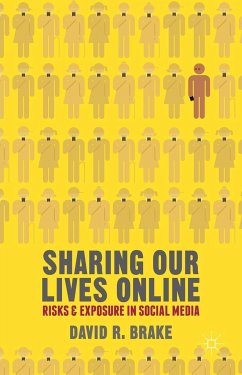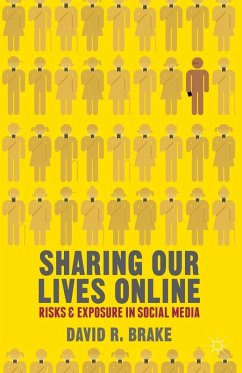
Digital Fascism
Media, Communication and Society Volume Four
Versandkostenfrei!
Versandfertig in 6-10 Tagen
33,99 €
inkl. MwSt.
Weitere Ausgaben:

PAYBACK Punkte
17 °P sammeln!
This fourth volume in Christian Fuchs's Media, Communication and Society book series outlines the theoretical foundations of digital fascism and presents case studies of how fascism is communicated online.Digital Fascism presents and engages with theoretical approaches and empirical studies that allow us to understand how fascism, right-wing authoritarianism, xenophobia, and nationalism are communicated on the Internet. The book builds on theoretical foundations from key theorists such as Theodor W. Adorno, Franz L. Neumann, Erich Fromm, Herbert Marcuse, Wilhelm Reich, Leo Löwenthal, Moishe P...
This fourth volume in Christian Fuchs's Media, Communication and Society book series outlines the theoretical foundations of digital fascism and presents case studies of how fascism is communicated online.
Digital Fascism presents and engages with theoretical approaches and empirical studies that allow us to understand how fascism, right-wing authoritarianism, xenophobia, and nationalism are communicated on the Internet. The book builds on theoretical foundations from key theorists such as Theodor W. Adorno, Franz L. Neumann, Erich Fromm, Herbert Marcuse, Wilhelm Reich, Leo Löwenthal, Moishe Postone, Günther Anders, M. N. Roy, and Henry Giroux. The book draws on a range of case studies, including Nazi-celebrations of Hitler's birthday on Twitter, the 'red scare 2.0' directed against Jeremy Corbyn, and political communication online (Donald Trump, Boris Johnson, the Austrian presidential election). These case studies analyse right-wing communication online and on social media. Fuchs argues for the safeguarding of the democratic public sphere and that slowing down and decommodifying the logic of the media can advance and renew debate culture in the age of digital authoritarianism, fake news, echo chambers, and filter bubbles.
Each chapter focuses on a particular dimension of digital fascism or a critical theorist whose work helps us to illuminate how fascism and digital fascism work, making this book an essential reading for both undergraduate and postgraduate students of media and communication studies, sociology, politics, and political economy as well as anyone who wants to understand what digital fascism is and how it works.
Digital Fascism presents and engages with theoretical approaches and empirical studies that allow us to understand how fascism, right-wing authoritarianism, xenophobia, and nationalism are communicated on the Internet. The book builds on theoretical foundations from key theorists such as Theodor W. Adorno, Franz L. Neumann, Erich Fromm, Herbert Marcuse, Wilhelm Reich, Leo Löwenthal, Moishe Postone, Günther Anders, M. N. Roy, and Henry Giroux. The book draws on a range of case studies, including Nazi-celebrations of Hitler's birthday on Twitter, the 'red scare 2.0' directed against Jeremy Corbyn, and political communication online (Donald Trump, Boris Johnson, the Austrian presidential election). These case studies analyse right-wing communication online and on social media. Fuchs argues for the safeguarding of the democratic public sphere and that slowing down and decommodifying the logic of the media can advance and renew debate culture in the age of digital authoritarianism, fake news, echo chambers, and filter bubbles.
Each chapter focuses on a particular dimension of digital fascism or a critical theorist whose work helps us to illuminate how fascism and digital fascism work, making this book an essential reading for both undergraduate and postgraduate students of media and communication studies, sociology, politics, and political economy as well as anyone who wants to understand what digital fascism is and how it works.














